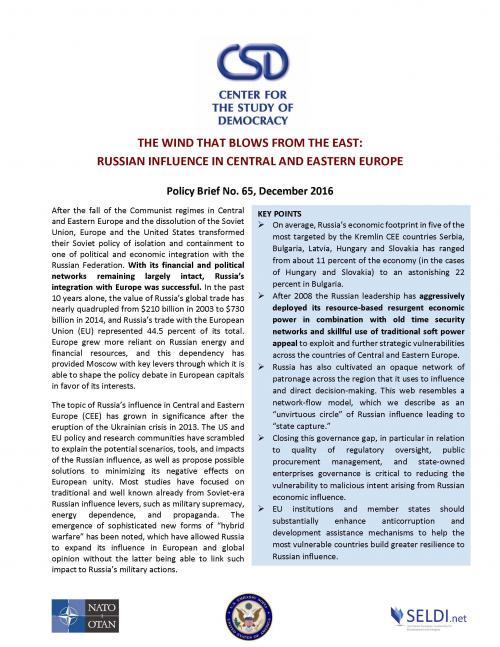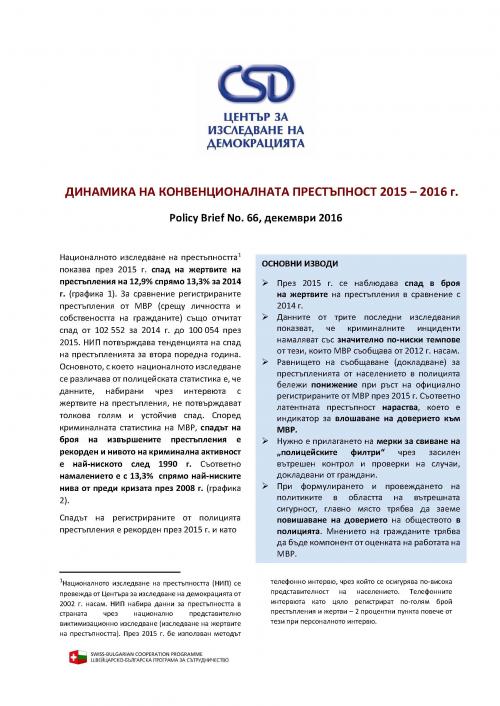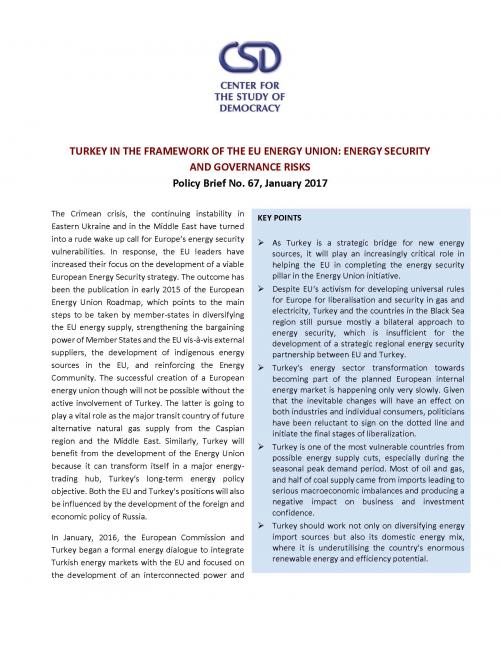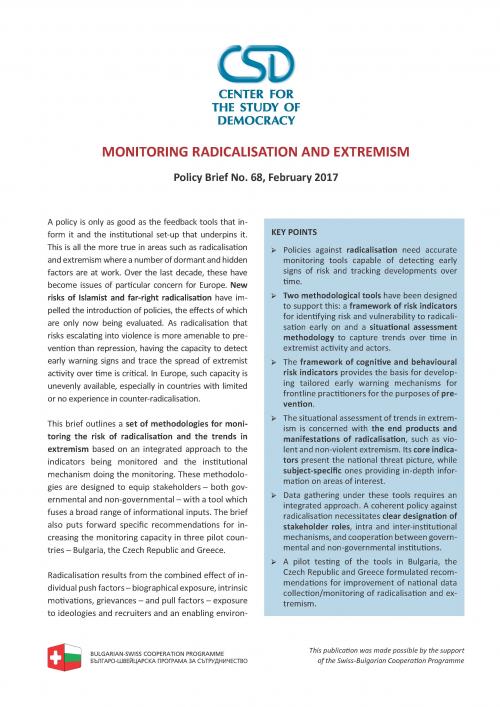
CSD Policy Brief No. 10: A Painful Shift in Bulgarian Anti-Corruption Policies and Practice
CSD Policy Brief No. 10: A Painful Shift in Bulgarian Anti-Corruption Policies and Practice
Keywords: CSD; CSD Policy Briefs; Center for the Study of Democracy; corruption;
In its March 2006 annual corruption assessment report On the Eve of EU Accession: Anti-Corruption Reforms in Bulgaria the Center for the Study of Democracy emphasized that “corruption, particularly in the high echelons of power, is one of the most critical problems faced by Bulgaria on the eve of its accession” as the Bulgarian “public tolerates less corruption and is increasingly concerned by it.” Bulgaria needs to present clear evidence of results in its fight against corruption, in particular on high political level.
More...


















